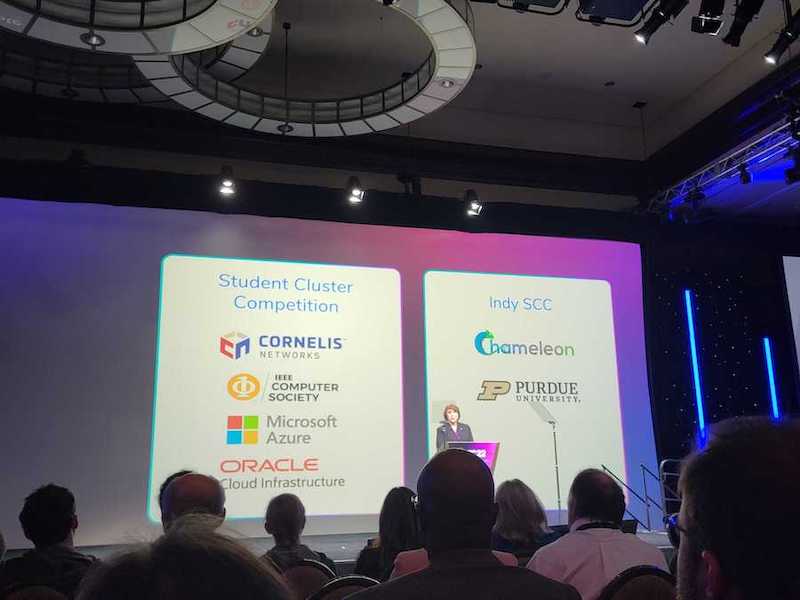Purdue sponsors IndySCC competition at the Supercomputing conference
Purdue’s Rosen Center for Advanced Computing (RCAC) recently donated hardware infrastructure, including an entire cluster of nodes of the recently retired Rice cluster, and provided staff support to a supercomputing competition for students just getting started in the field of high performance computing (HPC).
IndySCC is a remote, cloud-based competition that’s part of the larger Student Cluster Competition in which Purdue fielded a joint team with Indiana University this year. Now in its second year, the IndySCC seeks to minimize entry barriers for students interested in HPC, with the goals of education and inclusion for beginner-level teams. This year’s event took place from Nov. 4 to 6, where the teams competed remotely utilizing provided hardware as part of an educational experience backed by HPC industry professionals.
Purdue was the only university to donate infrastructure to the IndySCC.
Several members of RCAC also contributed to the event. Amiya Maji, senior computational scientist at RCAC, was in-charge and judged the HPL (high performance LINPACK) benchmark. Lead research solutions engineer Patrick Finnegan was responsible for managing the entire infrastructure and plugging it into the Chameleon cloud test-bed the students used to access the Rice nodes. Lev Gorenstein, senior computational scientist, was secondary judge of a molecular dynamics application the students used, and also co-judged the poster session of the event.
“We had given students access to up to 300 nodes to run the HPL benchmarks which is pretty unique for any competition,” says Maji. “I have not heard of any other cluster challenge competition that could give such large-scale resources to the competitors.”
The teams participated in a final challenge that was split into two parts to test their newly acquired knowledge. Each of the 10 teams had 24 hours and a maximum of 300 nodes during the first phase to set up a cluster and run HPL across the nodes to achieve the highest HPL score. The teams then battled for two days, using their knowledge of scientific software applications, including a mystery application that they were only made aware of at the beginning of the competition. Teams were graded in a zoom session on their application expertise as well as their completion and accuracy rates.

“We are extremely grateful for Purdue’s contributions to this year’s competition,” says Dan Dietz, the chair of student educational competitions for the Supercomputing conference. Dietz is an HPC engineer in the user assistance and outreach group at Oak Ridge National Laboratory, and a former RCAC staff member who reached out to RCAC about participating in the competition.
“The scale at which the teams were able to compete gave them a unique experience.”, says Dietz. To learn more about the community cluster program or other RCAC resources, contact rcac-help@purdue.edu.
